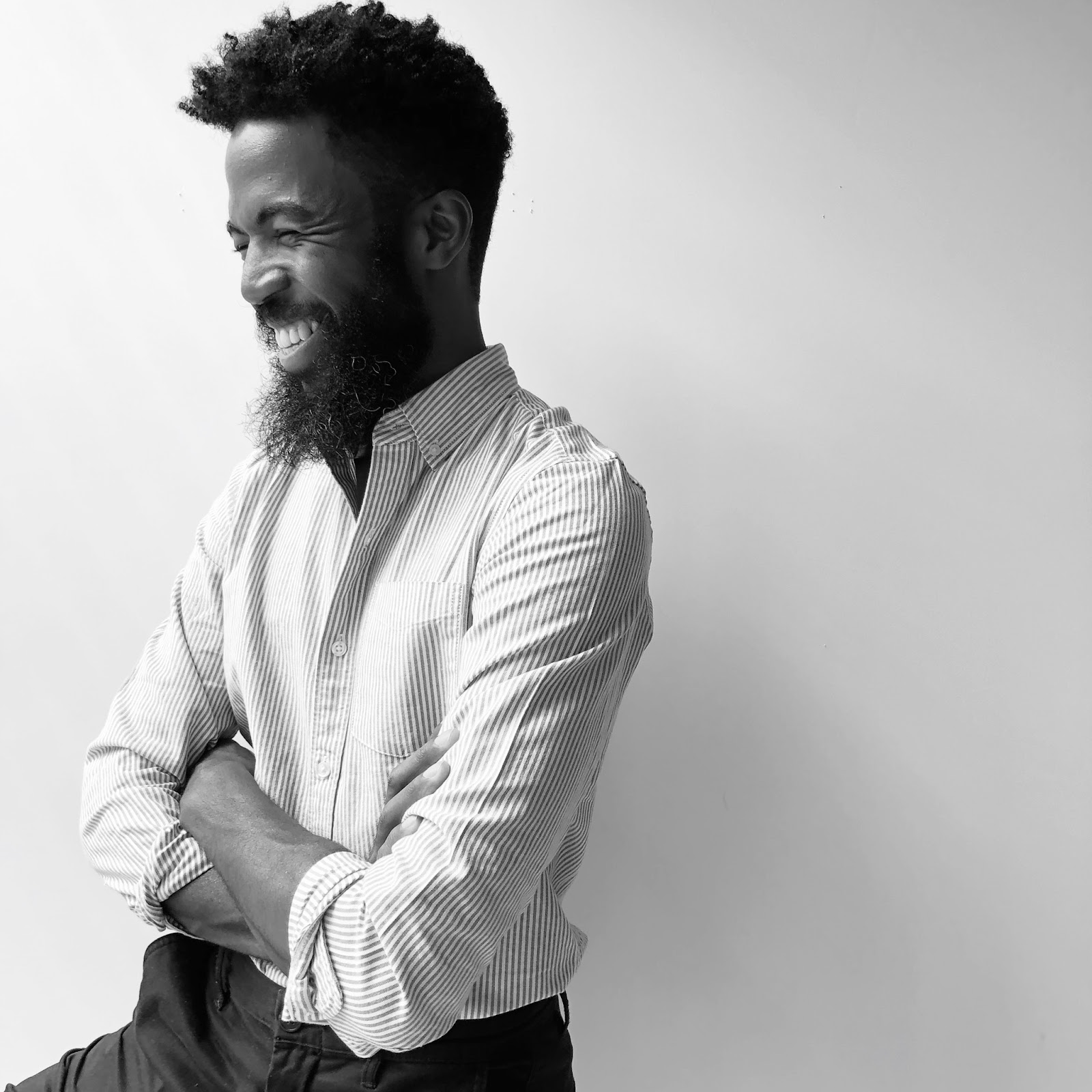Which I spell that way because that’s the way it was spelled
on all the clear plastic packets I grew up buying for no more
than two dollars, two fifty max, unless I was at Duane Reade
or some likewise corporatized venue but who buys
the majority of their durags at Duane Reade anyway,
who would actually wage war on the durag’s good name
by spelling it d-e-w hyphen r-a-g, as I recently read
some sad lost souls do in an article in The Guardian,
this isn’t botany. This isn’t a device one might use
to attend to the suburban garden & its unremarkable
flora, drying freshly damp wisteria with black silk
or the much more common nylon-rayon-cotton blend.
I could see d-o hyphen r-a-g. That works for me.
One could argue this version makes more sense
even than the spelling I am accustomed to,
reflective as it is of nothing other than itself.
I have never heard the term ’do used in a sentence
by anyone other than a long-lost colleague
at Princeton who once reached wide-eyed
for my high top fade before a swift rebuke,
marked by my striking his wrist as if some large
though distinctly non-lethal mosquito, surely a top six
proudest moment of anti-colonial choreography
I have dared call mine in this odd, improbable
life I hold to my chest like a weapon. I know.
I know. This wasn’t supposed to be about them.
You make me inordinately beautiful. Let’s talk
about that. Or how I’m 12 years old & the cape
of a white durag billows from beneath my Marlins cap
like a sham poltergeist, flight & failure contained
within a single body, worthy core of any early
2000’s era New York rapper’s coat of arms.
I was lying before. Once, while we sat, quiet
as mourners on the front porch, my father spat
that’s a nice ’do you have there, eyeing the soft mess
of cork-screwed darkness atop his second youngest
son’s aging face, no sign of the good hair he praised
for years to family & co-workers alike. Alas, old friend,
you somehow make me even more opaque, make
me mystery, criminal, dope boy by the corner
of Broadway & 127th compelling respectable
women to reach for smart-phones, call for backup,
smooth, adjustable shadow, like policy
or fire, you blacken everything you touch.
Published:
2016
Length:
Regular
Literary Movements:
Contemporary
Anthology Years:
2023
Themes:
Intersectionality & Culture
Poetic Form
Racial Injustice
Literary Devices:
Bleeding Title
when the title of a poem acts as the first line
Imagery
visually descriptive or figurative language, especially in a literary work
Juxtaposition
the fact of two things being seen or placed close together with contrasting effect
Ode
a lyric poem in the form of an address to a particular subject, often elevated in style or manner and written in varied or irregular meter
Personification
the attribution of human qualities to a non-human thing

